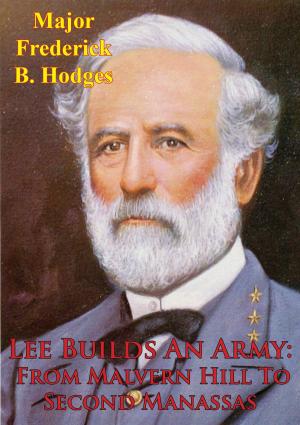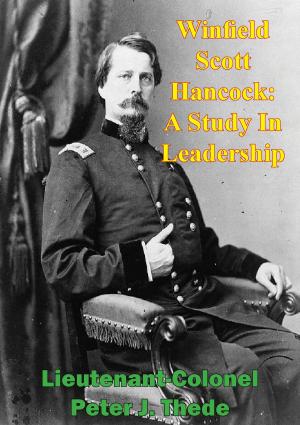The Effects Of Logistical Factors On The Union Pursuit Of The Confederate Army
During The Final Phase Of The Gettysburg Campaign
Nonfiction, History, Modern, 19th Century, Americas, United States, Civil War Period (1850-1877), Military| Author: | Colonel Donald J. Wetekam | ISBN: | 9781786255976 |
| Publisher: | Golden Springs Publishing | Publication: | November 6, 2015 |
| Imprint: | Golden Springs Publishing | Language: | English |
| Author: | Colonel Donald J. Wetekam |
| ISBN: | 9781786255976 |
| Publisher: | Golden Springs Publishing |
| Publication: | November 6, 2015 |
| Imprint: | Golden Springs Publishing |
| Language: | English |
For ten days after the Battle of Gettysburg, the Army of Northern Virginia, under command of Robert E. Lee, remained trapped on the Union side of the flooded Potomac River. During that time, the Army of the Potomac, commanded by George G. Meade, pursued the Confederate forces as they retreated across Pennsylvania and Maryland, attempting but never quite succeeding in bringing about another general engagement. This paper examines the extent to which logistical factors on the Union side of the line hampered the effort to destroy the Confederate army. Specifically, it will seek to show that the resource limitations experienced by the Union army were a decisive factor in their inability to destroy Lee’s forces while they remained trapped on Union soil.
For ten days after the Battle of Gettysburg, the Army of Northern Virginia, under command of Robert E. Lee, remained trapped on the Union side of the flooded Potomac River. During that time, the Army of the Potomac, commanded by George G. Meade, pursued the Confederate forces as they retreated across Pennsylvania and Maryland, attempting but never quite succeeding in bringing about another general engagement. This paper examines the extent to which logistical factors on the Union side of the line hampered the effort to destroy the Confederate army. Specifically, it will seek to show that the resource limitations experienced by the Union army were a decisive factor in their inability to destroy Lee’s forces while they remained trapped on Union soil.

![Cover of the book Advance And Retreat: Personal Experiences In The United States And Confederate States Armies [Illustrated Edition] by Colonel Donald J. Wetekam](https://www.kuoky.com/images/2015/november/300x300/9781786251411-oejF_300x.jpg)




![Cover of the book Three Months In The Southern States: The 1863 War Diary Of An English Soldier: April-June 1863 [Illustrated Edition] by Colonel Donald J. Wetekam](https://www.kuoky.com/images/2014/august/300x300/9781782895435-v1gu_300x.jpg)








